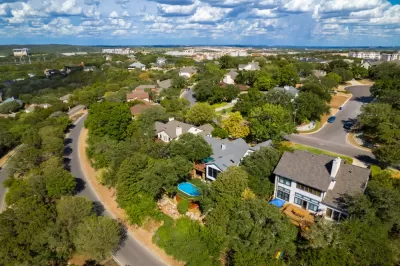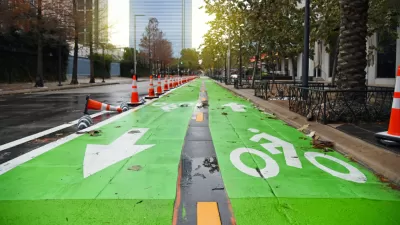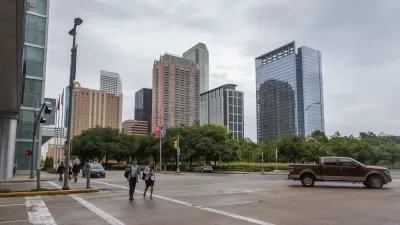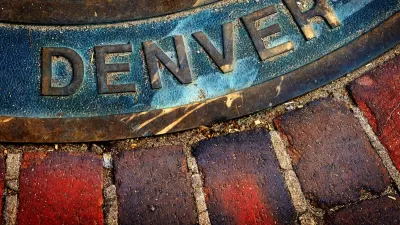Developers and homeowners might be able to opt-out of the Houston’s sidewalk ordinance under legislation under consideration by the Houston City Council this week.

The city of Houston is considering a “sidewalk-in-lieu-fee” that would allow homeowners and developers to pay a price to opt-out of the city’s sidewalk ordinance, according to an article by Yilun Cheng paywalled by the Houston Chronicle.
“Under current regulations, property owners and developers are required to build a sidewalk in front of a property unless the project meets certain exemptions,” according to Cheng. “With the new measure, applicants can choose to pay a fee of $12 per square foot if the required sidewalk construction is unsuitable or unfeasible. The fees would go into a new fund, which is expected to generate $1.7 million a year for the city to build sidewalks in a cohesive manner.”
The ordinance would split the city into 17 areas—70 percent of sidewalk-in-lieu-fees collected in each area would be allocated in the same area. The remaining 30 percent could be used citywide. David Fields, chief transportation planner at the Houston Planning and Development Department, is quoted in the article saying the fee system is intended to balance the need for sidewalk projects throughout Houston.
According to the Greater Houston Builders Association, which has advocated for the $12 per square foot fee, “a large tree, a drainage system or an open ditch” can sometimes make it implausible to build a sidewalk in front of a house. Greater Houston Builders Association Chief Executive Officer Aimee Bertrand is quoted in the article saying the fee will help bring down the cost of housing in the city.
FULL STORY: Houston's plan to avoid orphan sidewalks would let developers opt out of building them

Alabama: Trump Terminates Settlements for Black Communities Harmed By Raw Sewage
Trump deemed the landmark civil rights agreement “illegal DEI and environmental justice policy.”

Planetizen Federal Action Tracker
A weekly monitor of how Trump’s orders and actions are impacting planners and planning in America.

The 120 Year Old Tiny Home Villages That Sheltered San Francisco’s Earthquake Refugees
More than a century ago, San Francisco mobilized to house thousands of residents displaced by the 1906 earthquake. Could their strategy offer a model for the present?

In Both Crashes and Crime, Public Transportation is Far Safer than Driving
Contrary to popular assumptions, public transportation has far lower crash and crime rates than automobile travel. For safer communities, improve and encourage transit travel.

Report: Zoning Reforms Should Complement Nashville’s Ambitious Transit Plan
Without reform, restrictive zoning codes will limit the impact of the city’s planned transit expansion and could exclude some of the residents who depend on transit the most.

Judge Orders Release of Frozen IRA, IIJA Funding
The decision is a victory for environmental groups who charged that freezing funds for critical infrastructure and disaster response programs caused “real and irreparable harm” to communities.
Urban Design for Planners 1: Software Tools
This six-course series explores essential urban design concepts using open source software and equips planners with the tools they need to participate fully in the urban design process.
Planning for Universal Design
Learn the tools for implementing Universal Design in planning regulations.
Clanton & Associates, Inc.
Jessamine County Fiscal Court
Institute for Housing and Urban Development Studies (IHS)
City of Grandview
Harvard GSD Executive Education
Toledo-Lucas County Plan Commissions
Salt Lake City
NYU Wagner Graduate School of Public Service





























